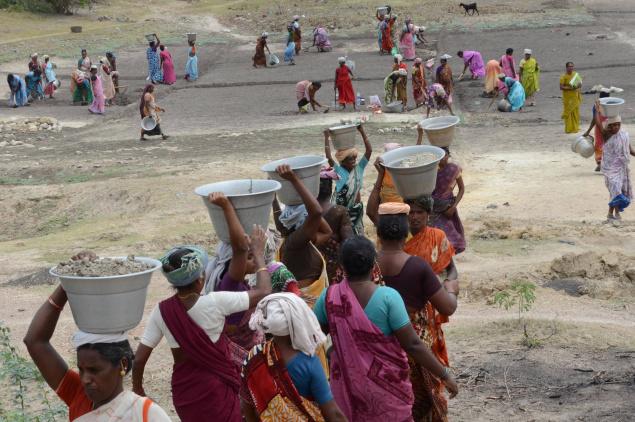New Delhi, December 16: With an eye on the upcoming General elections, the Centre on Monday announced significant changes to its flagship MGNREGA programme seeking to ensure permanent and durable asset creation and an introduction of a penalty for delayed wage payments.
More specifically, the changes include Rs 10,000 for the construction toilets for all job card holders and assistance for buildings for women self help federations.
“Every (MGNREGA) job card holder will be entitled to build an individual toilet and the MGNREGA contribution goes up from the current Rs 4,500 to Rs 10,000,” said Rural Development Minister Jairam Ramesh while announcing changes in Schedule I and Schedule II of the scheme.
“Anybody who has a job card, you may be APL… and if you don’t have a toilet at your home, you will get Rs 10000 under MGNERGA for constructing toilet… What we are doing is we are expanding the universe of people who can build toilets,” he added.
Addressing the persistent issue of delay in distributing wage payment to MGNREGA workers, the government has announced compensation for them if it is delayed beyond 15 days and the amount would be deducted from officials responsible for it. Andhra Pradesh has already started to implement this.
Additionally, wage payments will be made exclusively on the basis of measurement of work done instead of solely attendance.
The minister went on to reiterate the three objectives of NREGA. First to provide wage employment, second is to create durable community assets and third to empower gram panchayats.
Mr. Ramesh announced the contribution of MGNREGA for constructing houses for the poor in convergence with Indira Awas Yojana (IAY) or any other state rural housing scheme, buildings for women self
help federations operating in village or block levels, community storage facilities at gram panchayat or women SHG levels for agriculture produce and centres for manufacturing building materials like bricks in gram panchayats.
“The biggest contribution of NREGA for agriculture would be if small and marginalized farmers use the scheme to improve the quality and productivity of their farmland” said Mr. Ramesh. He further added that this could lead to a potential “agricultural revolution”.

